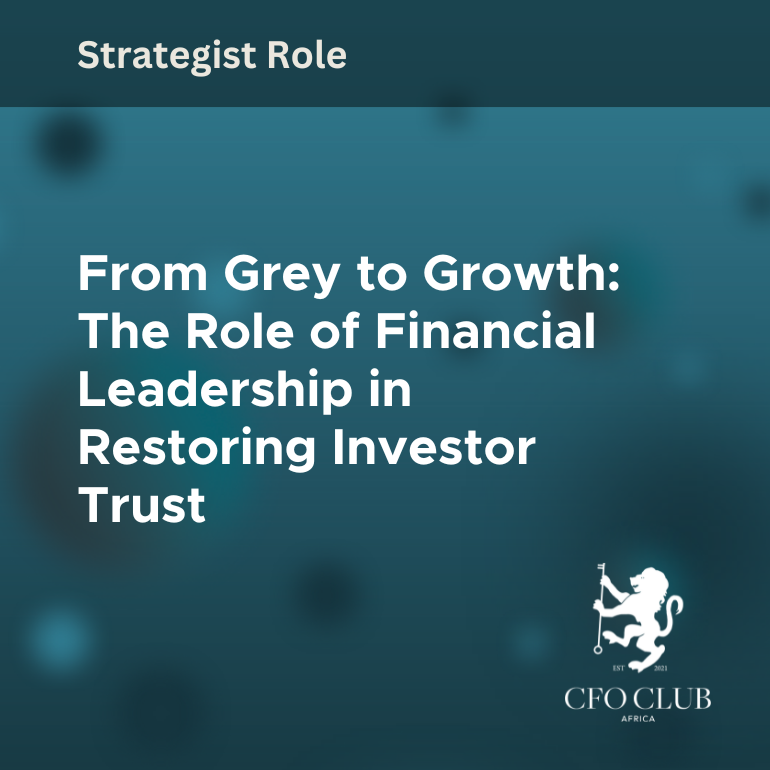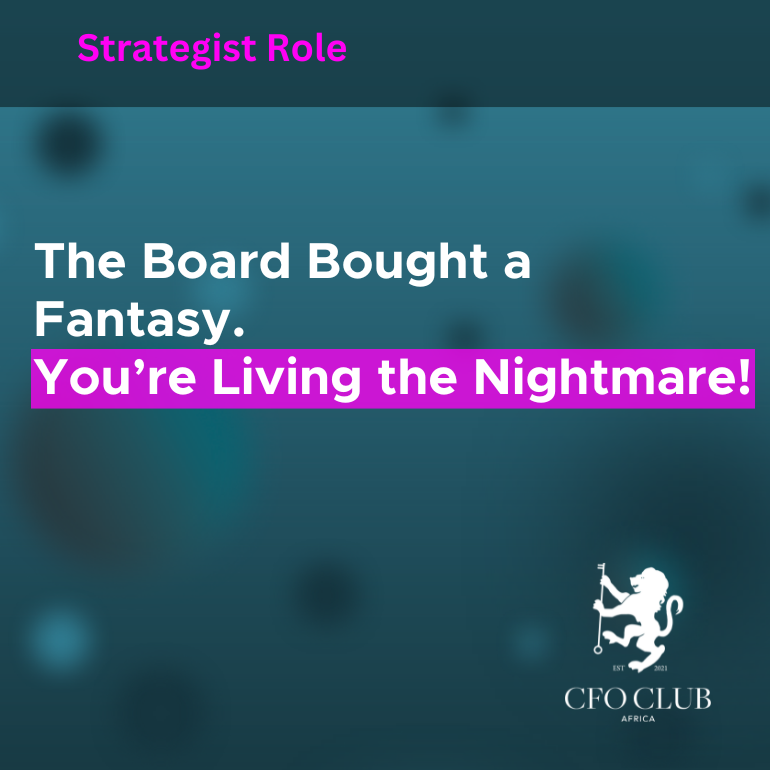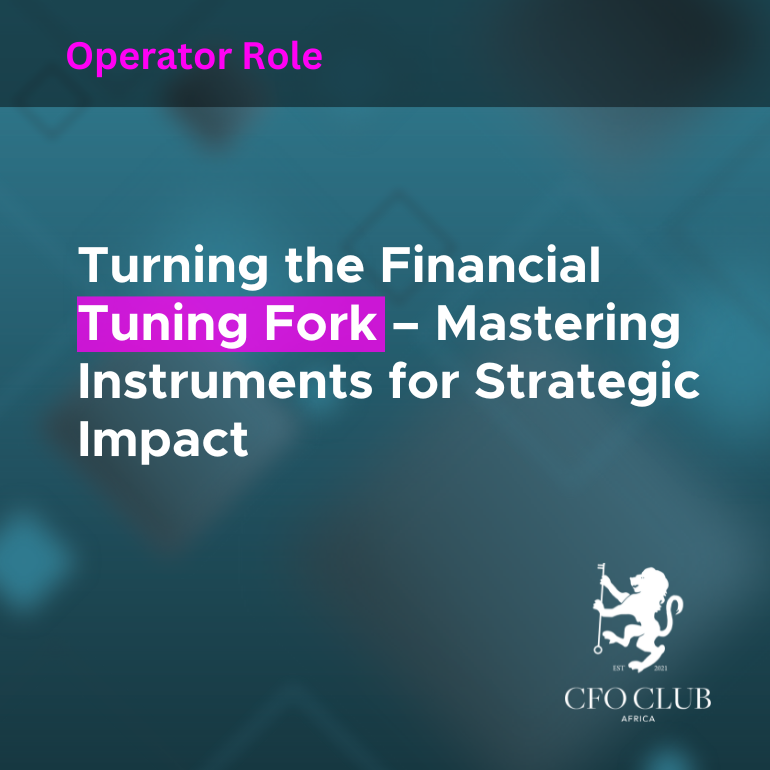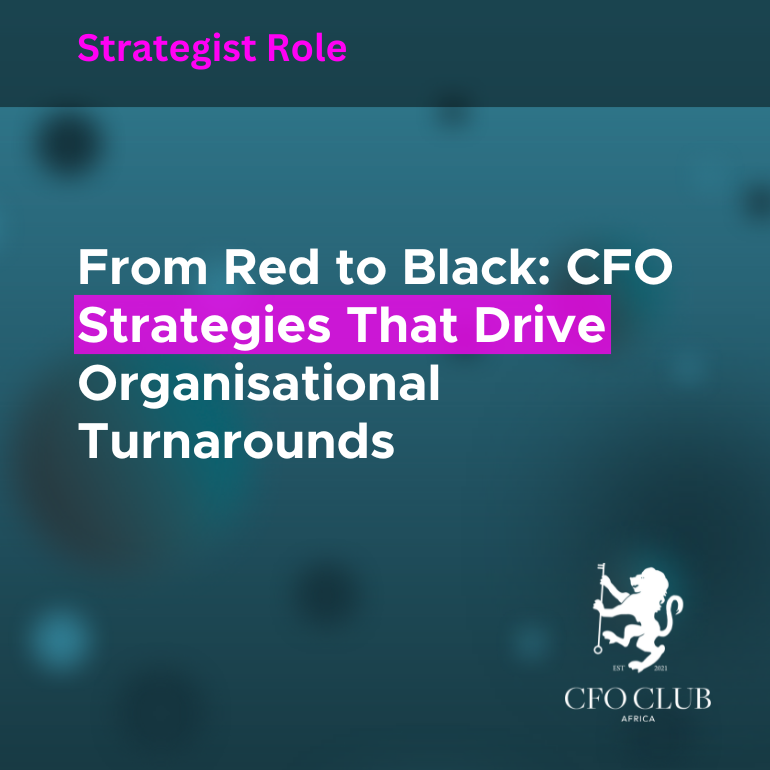From Grey to Growth: The Role of Financial Leadership in Restoring Investor Trust
South Africa’s economy does not only need growth; it needs trust. Investors no longer respond to optimism alone. They look for proof of discipline, transparency, and ethical management. In this context, the financial leader has become a symbol of credibility. The actions and words of a CFO now influence how the market perceives the entire organisation.
Credibility as the New Currency
In volatile economic conditions, credibility functions as currency. When investors doubt a country’s institutions or a company’s integrity, capital quietly moves elsewhere. The antidote is not another round of promises. It is proof that governance is alive, that the numbers are honest, and that leadership is accountable.
For CFOs, credibility is measured not only in financial accuracy but in tone, transparency, and responsiveness. Stakeholders want to see financial leaders who identify risks early, report them clearly, and respond decisively. Every communication, forecast, and disclosure builds or erodes that confidence.
Financial Leadership Beyond Compliance
It is tempting to treat compliance as a checklist. But a changing world expects more. Regulators, lenders, and investors want evidence of values, not only adherence to rules. Financial leadership must evolve from compliance management to integrity management.
This shift begins with ownership. Instead of asking “What does the law require?”, leading CFOs ask “What will strengthen trust?” They use data analytics to anticipate risk areas, strengthen controls, and encourage a culture where doing the right thing is faster and simpler than hiding a mistake. They see integrity not as an ideal but as a process that can be measured and improved.
Such financial leaders do not just prevent problems; they predict them. They turn compliance into an operational habit, not a once-a-year audit exercise.
Rebuilding Investor Confidence from the Inside Out
Restoring confidence is not an external marketing exercise. It is an internal discipline that radiates outward. Financial leaders can rebuild trust through consistent actions that prove the organisation’s integrity is real.
First, by reporting transparently even when results disappoint. Markets value honesty more than perfection. Clear explanations of challenges and credible plans for recovery create belief in leadership.
Second, by allocating capital responsibly. Every spending decision signals how management views risk and opportunity. Thoughtful capital discipline shows restraint, maturity, and a focus on sustainable value creation.
Third, by ensuring that governance frameworks actually work in practice. A well-written policy means little if employees or suppliers can bypass it without consequence. CFOs who test and enforce their controls show investors that systems, not slogans, underpin the organisation’s ethics.
Turning Compliance into Competitive Strength
Sound governance is often viewed as a cost, but in truth it is a differentiator. A company that can prove its compliance readiness, produce verifiable financial data, and satisfy international due diligence checks operates with lower transaction friction and greater investor appeal.
The relationship between compliance and competitiveness is direct. Banks offer better financing rates to entities that demonstrate strong governance. Multinationals prefer to partner with businesses whose financial controls can stand up to global scrutiny. Clients, too, are more willing to engage long term with organisations that are transparent and predictable.
CFOs who integrate compliance into everyday business processes unlock efficiency rather than bureaucracy. They move from reactive firefighting to proactive trust building.
The CFO as Builder of Confidence
Financial leaders have become central to how nations and industries restore confidence. They hold the keys to financial integrity, risk management, and corporate accountability. By upholding transparency and discipline, CFOs contribute to a climate of predictability that investors crave.
When a CFO insists on following correct procedures, questions questionable transactions, or refuses to manipulate results, it sends a signal that integrity still matters. Over time, those small decisions create a corporate culture that is resistant to scandal and attractive to capital.
Trust in the economy is rebuilt through daily leadership choices. The cumulative effect of ethical decisions made in boardrooms, finance departments, and audit committees can change the investment narrative of an entire country.
Technology and Transparency
Digital transformation has given CFOs powerful tools to strengthen confidence. Automated reconciliation systems, AI-driven fraud detection, and blockchain-based audit trails provide accuracy that manual processes cannot match. These technologies enhance visibility, speed up verification, and reduce opportunities for error or manipulation.
When technology supports transparency, stakeholders gain real-time assurance that controls are functioning. This not only reduces operational risk but also improves how external partners perceive the organisation. A transparent, data-driven finance function becomes a cornerstone of investor confidence.
Courage and Communication
Leadership credibility depends on courage. It takes courage to report uncomfortable truths, to refuse convenient shortcuts, and to uphold ethical standards when others look away. It also takes communication skill to explain financial realities in a way that inspires confidence rather than fear.
CFOs must communicate with clarity, not jargon. Investors and employees respect leaders who can explain complex challenges in plain, factual language. When financial leaders communicate openly about risks and opportunities, they show command of their environment and confidence in their ability to manage it.
From Grey to Growth
Economic growth is not achieved through policy announcements alone. It begins when organisations demonstrate that they can be trusted to use capital wisely, to report honestly, and to correct mistakes quickly. Financial leaders play a defining role in that process.
The journey from uncertainty to stability depends on leadership that sees credibility as its most valuable asset. Every accurate report, every ethical decision, and every transparent disclosure adds another layer of confidence. Growth follows trust, and trust follows integrity.
South Africa’s financial leaders have the ability to move the narrative from grey to growth by leading with clarity, competence, and conviction. The transformation begins not with government reform, but with the collective integrity of those who manage its capital.





